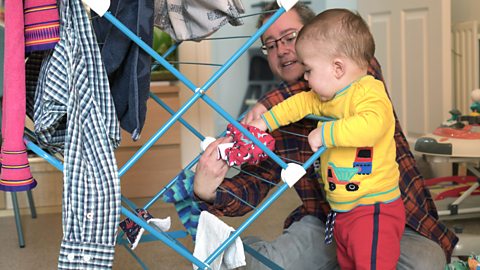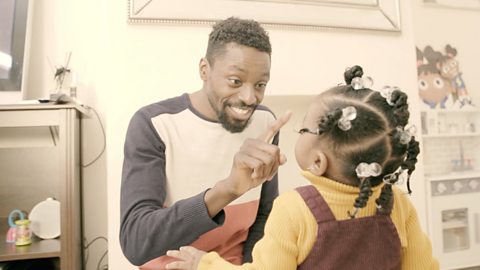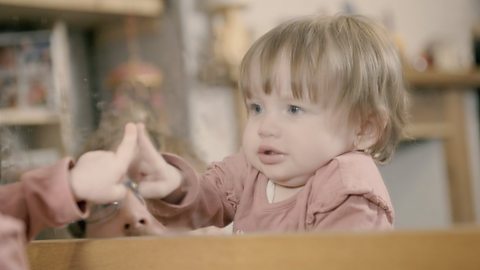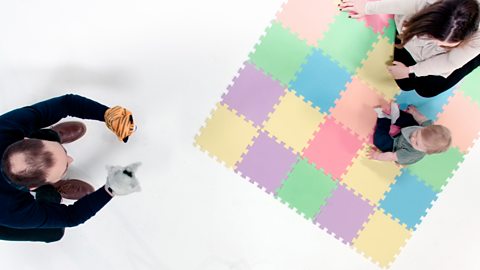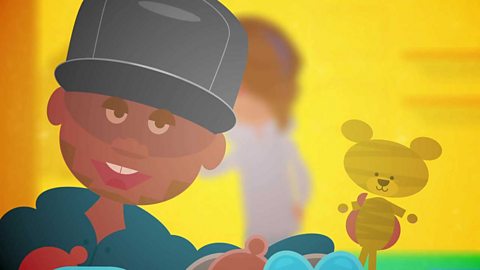ΒιΆΉΤΌΕΔ > Activities > 10 months > 11 months > 12 months
Want a proven way of speeding up your baby's early language learning? Just make sure you keep an eye on all the things they seem interested in.
If you talk about them, they'll be more interested in the words you say and start to link the words to the things they see.
Want to see this in action? Watch the video to see how this looks.
Why tune into baby's interests?
- If you look at and point out the things they're already looking at and talk to them about those things as you go, they're more likely to pick up on the words you're using and make connections between the words and those things. This is referred to by speech and language therapists as 'joint attention'.
- Baby will be more engaged with you and what you are saying, especially when you couple it with gestures like pointing and lots of expression in your voice and face.
- Joint attention activates lots of areas in their brains that are connected to socialising and language learning.
- It is particularly good for the part of the brain that is involved with understanding emotions and remembering the meanings of words.
More about why joint attention is great for babies' learning.
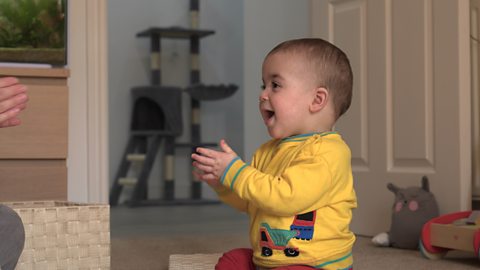
How to develop joint attention
Pay attention to the things that your baby is taking an interest in as they play.
Name that thing and talk to them about it. So, if they were looking at a toy mouse like the child in the video, and they seem taken with the mouse's eyes, you could say 'that's Mouse and that's Mouse's eyes.' If they move on to touch the toy's whiskers, you could move on to 'that's his pointy whiskers'. Or you could talk about the noises the mouse makes - 'Mouse goes squeak!'.
Try keeping the toy between you so that you can both focus on it.
If your baby loses interest and starts playing with or looking at something else, move your attention to that thing too.
Remember to use a sing-song voice - this helps baby to engage and pick out the different sounds that make up words. Also, get close to baby, face-to-face and make plenty of eye contact.
If your baby makes a noise or gesture, copy them - this shows them that you're paying attention and that their attempts to communicate are important. This could include actions like pointing or clapping.
Repeat the names of things and actions over and over again - the more they hear the words, the more likely they'll connect your words to the things they see.
Activities to build joint attention
There are many ways you can help your baby develop joint attention skills. We've listed a couple below:
- Practise joint attention as part of your daily routine, during tasks such as brushing teeth or at bath and mealtimes.
- Playing hide the toy helps teach your child to follow your gaze, point and head turns.


